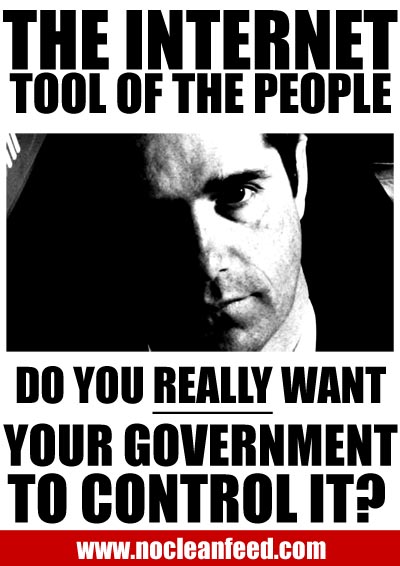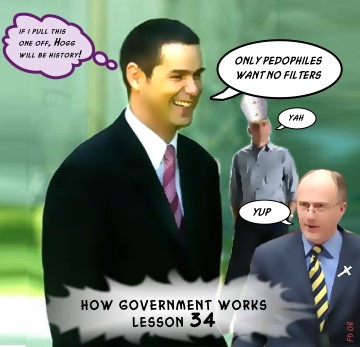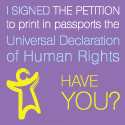The Minister for Digital Obstruction has decided to reduce his mooted 18 day EPIC FAIL blog to 16 days – get in now folks, you have till 3 pm on December 24 to vent your thoughts. And if this is the first you’ve heard about it, follow the links below and in previous posts here to bring yourself up to speed.
Conroy’s signature behaviours are scope-creep, secrecy and lies, in view of which trusting him, the present wowser government and their Hollow Men with upholding our individual human rights is patently unwise. Without revealing precisely who is participating in the ludicrous ISP filter trials yet or which filtering technology will be tested, Conroy’s latest scope creep is to include filtering of Bit Torrent and other P2P protocols in his trials, the commencement of which has now been delayed to mid January. Filtering unencrypted traffic is fraught with difficulties and expense, let alone considering the degrading effects on network performance and potential major dangers resultant from encrypted packet inspection at ISP level.
Pushed by news stories detailing a leaked IIA report commissioned by the Howard government which identified serious flaws in ISP filtering, Conroy has now published the full report himself. Contributor to the report, Bjorn Landfeldt makes further comment about blacklists on his blog.
“So, what is the big issue as I see it? A blacklist requires manual effort in order to determine what should be included. The Internet is a network of networked computers that carry information in many forms and realms, one of which is the World Wide Web. If we restrict ourselves to talk about only WWW, we have a global network with billions of pages worth of information. The information is made up of all different languages of the world and incredible diverse. Some information has a very high profile and some information has very limited visibility. Since a blacklist would rely on user reporting, it is questionable how efficient it would be to locate unwanted content in the first place. Second, every case would have to be tried to see if it breaches Australian law and falls within the categories specified for the filtering list. It will be a very difficult task to do this for content in the grey zone in all different languages. If the point is to stop child pornography, determining if a model is 19 or 25 in content from a different country with different jurisdiction is not an easy task and would be quite labour intensive. The next question is who is responsible for blocking of material that is legal if the wrong judgement is made?
The only way to identify such material quickly and significantly limit the risk of accidental access is to do some form of dynamic content filtering. However, the state of the art of such technologies is very limited in accuracy and if they are to be used there is a consequential performance impact on the response times of systems or at least an increased cost for the service provider. Current filters are rather good at detecting certain patterns of information such as a combination of many images and certain keywords usually means a porn site. However, there are at least two additional dimensions to consider. First, the current filters only look at such patterns, they do not try to analyse the actual content in any meaningful way. It is therefore difficult to distinguish between different types of content where there are similarities. For example, if a web site contains information about sex education or erotic content. Second, more and more content moves to other forms of multimedia and filtering and detecting the nature of content is much much harder in this case. For example, analysing a video and detecting that it has adult content is not a lightweight computational task. Separating sex education from porn is even harder. Third, if indeed there would be widespread filtering of content the providers would see a need to obfuscate content to fool filters. When we step into this realm it becomes very difficult for any filters to keep up.”
Confirming his continued commitment to filter trials, Conroy suggests that “International experience suggests that index-based filtering of a central blacklist is technically feasible.” But is it desirable or sensible?
In the face of the following, if he really cared about children, Conroy should repudiate his censorship plans immediately. The idiocy and counterproductivity of government blacklists in enabling, not preventing child abuse is perfectly illustrated with the publishing of the Danish and Thai blacklists on Wikileaks. Thai censorship was initially focused on child pron sites, and was expanded to include political censorship of sites which criticised the Thai royal family. The Fringe anticipates the leaking of the Australian blacklist is nigh.
Here’s some great Christmas links to remind us that Australians do care about their freedoms, even if government has forgotten it’s the servant of the people, not their ruler:
In Touch With The Obvious. Mostly says:
“In spite of the Senator’s reassurance, this is fundamentally an attack on free speech. Our laws are defined in such a way that whatever is not prohibited by law remains legal. (We legislate against certain behaviours, rather than regulate in favour of others.) Final responsibility for any action ultimately falls to the individual. By introducing an ISP-level filter, Sen Conroy has removed that freedom. In spite of your protests, Senator, you are censoring free speech by introducing this filter.”
The Fringe has read somewhat bemusedly the statement of Mike of Melb, who posted in hit and run fashion on this blog as The Observer. The statement in part reads:
“I have been interacting with several players involved in this whole process for over a year, on an ad-hoc and unpaid basis (advisory on technologies and market developments), however I recently agreed to be contracted with a vendor of ISP-filtering solutions.”
Meanwhile, Hoyden About Town has trouble making sense of this world. So do we!
Alex Byrne’s “The way of the wowser: censorship as a barrier to access to information” is a worthy reference on Australian wowserism:
“The wowser is a killjoy, one who wishes to spoil the pleasure of others especially in entertainment, alcohol and sex. It includes temperance advocates and homophobes. The way of the wowser is to seek to control the lives of others: in our domain, to bar access to information which the censor finds objectionable.”
And from the twitterverse:
@mpesce “”Politics is the art of looking for trouble, finding it everywhere, diagnosing it incorrectly and applying the wrong remedies.” — Groucho
Another example of gross governmental irresponsibility and inadequacy has come to light with the release of the Clarke report on the Haneef affair. Mick Keelty, the AFP, Howard and his Ministers will be protected despite the report’s findings of culpability. Cameron Reilly puts it not so mildly:
The report found that the AFP told the Howard Government that there was no evidence against Haneef – AND THEN CHANGED THEIR MIND. This is what they call “in good faith”?
I call it BULLSHIT.
So the Rudd Government is going to give the Howard ministers and the AFP a get out of jail free card. Does it have anything to do with how Rudd, when Opposition leader, didn’t have much to say about the Howard Government’s handling of the case? Or is it just favours for mates?
Over at Tech Wired Australia, Ben Grubb has a stellar piece about the victimisation by police of citizen journalist Nick Hac who last Friday was “threatened with arrest under the Australian Anti-Terrorism Act 2005 for videoing Police performing a search in public.” His phone was confiscated, searched and the video deleted despite him not consenting to search of his phone. Margaret Simon highlights this travesty on her blog at Crikey.







 Congratulations to the AFP who have busted another clutch of child proners. The ring used
Congratulations to the AFP who have busted another clutch of child proners. The ring used 
